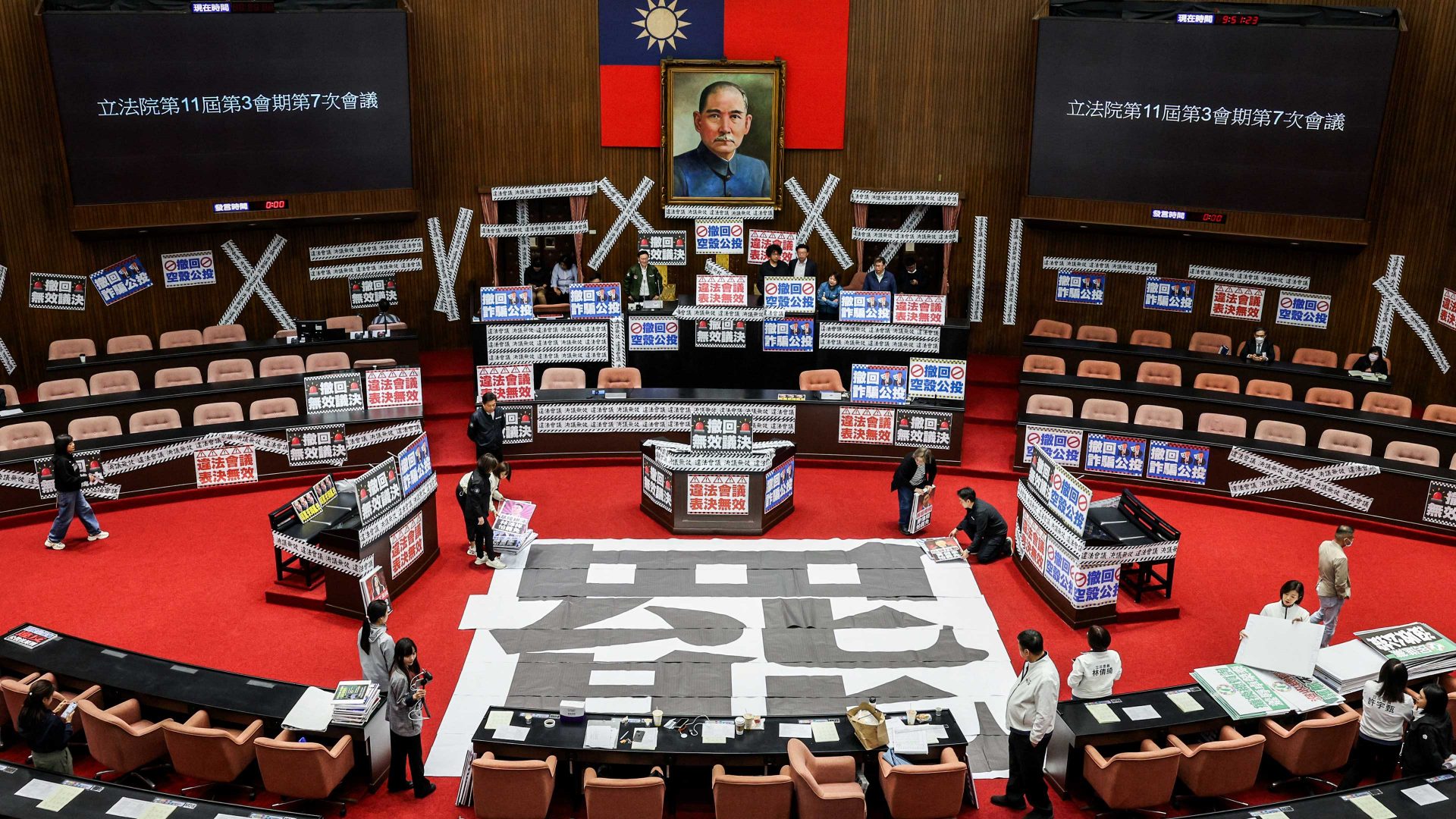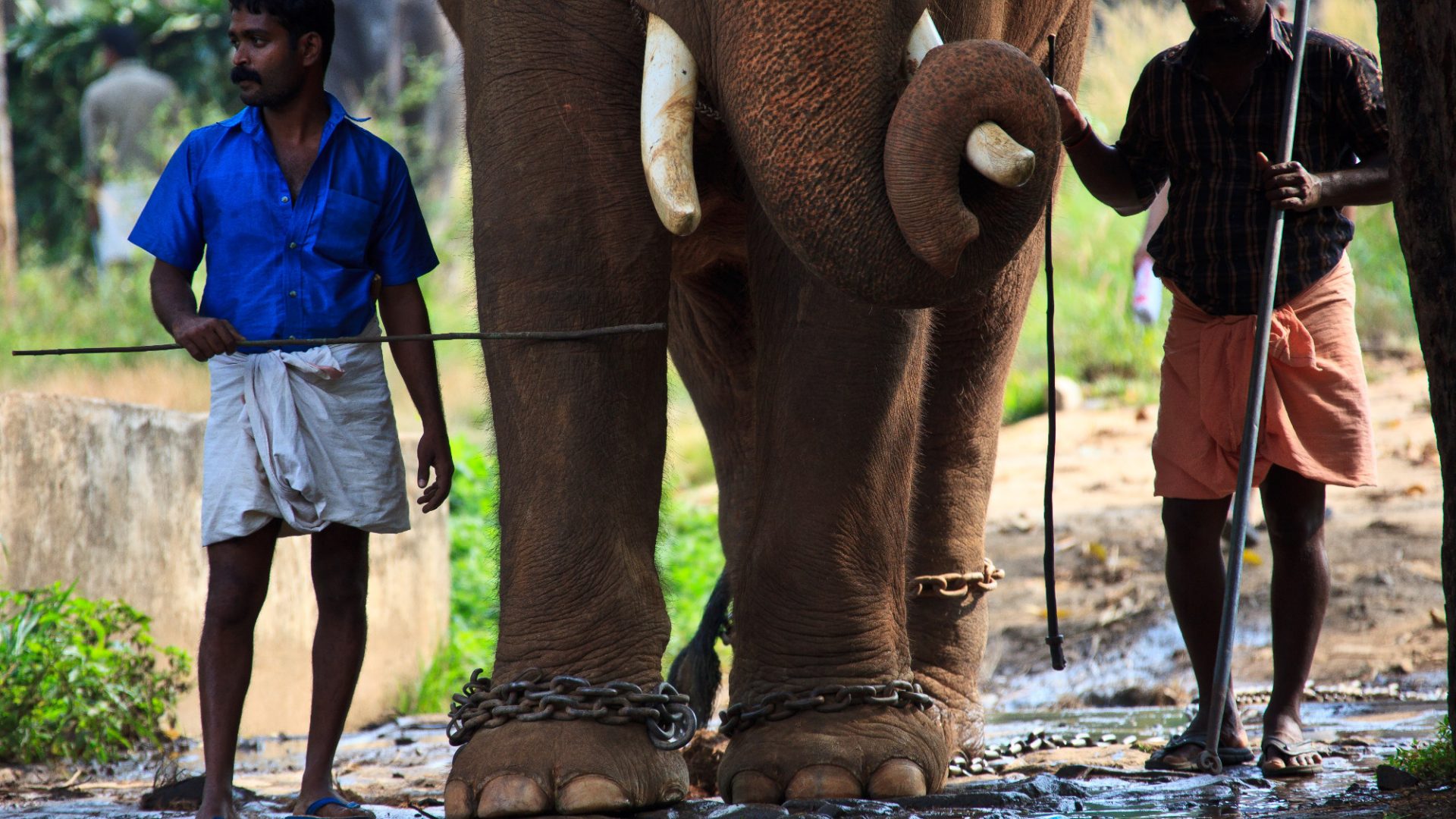I’m on the way to dinner with a friend when I notice a small group of people in Da’an Park, in Taipei, collecting recall signatures. They’re shouting slogans about protecting Taiwan and defending against the Kuomintang party’s attempts to undermine Taiwanese democracy.
But why here? I wonder to myself. I know about the recall campaign against Hsu Chiao-hsin, the Kuomintang legislator of Da’an District, but that had already met the benchmark for a recall vote to happen.
As it turns out, they’re not collecting signatures for Taipei at all, but from anyone who happens to live in Hsinchu, a city on the north-west coast. There’s a recall campaign against a Kuomintang legislator from up there too, which has yet to reach the required number of signatures. They’re collecting signatures on the off-chance that there will be Hsinchu residents commuting home from Taipei.
It’s like an election year. Pass by any metro station and you’ll see small groups collecting signatures for recalls. Elections were only last year, and the activists are already out again, looking for supporters.
Taiwan is in the throes of the “Great Recall Movement.” Namely, there is an unprecedented campaign underway to recall all legislators belonging to the Kuomintang. Formerly the sole ruling party during Taiwan’s authoritarian period, the Kuomintang is now the political party in Taiwan that favours closer political and economic ties with China. It currently holds a slim majority in the legislature over the DPP, its political rival, which favours distance from China.
The Sunflower Movement was the month-long occupation of the Taiwanese legislature by student activists in 2014, demonstrating against a trade agreement advanced by the Kuomintang. The movement, which I participated in as a student, was among the largest in Taiwanese history. But these new recalls are on a whole new level.
International observers have sometimes struggled to understand why we Taiwanese don’t seem to react very much to China’s military threats. Certainly, there is concern – just look at the number of young Taiwanese who’ve volunteered for civil defence training. A new and widely discussed television drama that will be released in August, Zero Day, dramatises events in Taiwan following a Chinese blockade.
But even though Chinese military activity around Taiwan is increasing by the day, there is no panic in the streets. People are not stockpiling food or seeking air-raid shelters. Though some young people have become concerned about the threat of invasion, that is still a minority.
It isn’t that the Taiwanese aren’t concerned about the military threats, but that the danger is registered through the internal dynamics of Taiwanese politics. The Kuomintang is perceived as China’s domestic proxy – and so they become the focal point of public anger.
It’s not hard to see why. Earlier this year the Kuomintang sought to cut or freeze up to 34% of the government’s operational budget, including defence spending. These cuts – the largest ever proposed in Taiwanese history – prompted the wave of recalls.
Last year, the Kuomintang sought new policing powers that civil society groups viewed as a throwback to past authoritarianism, prompting the eruption of huge protests that later came to be known as the Bluebird Movement. When these powers were struck down by the Constitutional Court, the Kuomintang next moved to pass legislation to freeze Taiwan’s highest court. Kuomintang legislators have also sought to decriminalise Taiwanese military personnel making public shows of loyalty to China. One senior Kuomintang even faced allegations of passing military secrets to China about Taiwan’s submarine programme.
And so here we are, once again in the midst of what amounts to a de facto election, with rallies and political ads plastered across the streets. It’s still to be seen if the Democratic Progressive Party is able to recall six Kuomintang parliamentarians and win in the resulting by-elections, which would change the balance of power in the legislature. That’s why it feels so much like a national election.
Brian Hioe is a writer, editor, translator, activist and DJ based in Taipei



